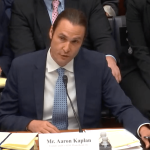Quinio, an e-commerce aggregator that acquires, operates and builds consumer packaged e-commerce brands across Latin America, secured a $40 million boost in both equity and debt.
It’s an interesting time for e-commerce aggregators. Over the past year, the market went from hot, hot, hot to cool, though some aggregators still held on and were even able to close on venture capital deals. For example, OpenStore closed on $32 million in September, while secondhand apparel aggregator Gently took in $2 million of pre-seed dollars and Una Brands bagged $30 million to acquire APAC brands.
Quinio’s co-founder and CEO Juan Gavito said via email that he witnessed similar changes this year, calling 2022 “an atypical year for e-commerce” as consumers’ shopping habits shifted back to in-person after two years of purchasing largely online.
“This shift created a more challenging environment for e-commerce aggregators who benefited strongly from the rapid acceleration seen during 2020 and 2021,” he told TechCrunch. “We expect the market to settle down a bit during this year and get back to pre-COVID growth rates for 2023.”
Gavito started Quinio in 2020 with his brother, Santiago Gavito, and Iker Garay. We previously profiled the company in December 2021 when it raised $20 million in seed funding, also a mix of equity and debt.
The company focuses on brands in the areas of home and kitchen, beauty and personal care, baby, health and household items. It already owns and operates several brands that have a presence in Mexico, Colombia, Chile and the U.S.
Over the past year, Gavito also saw the growth environment become more challenging, which led to industry peers “struggling to fulfill their projections.” Many of Quinio’s competitors also “struggled with fundraising and/or decided to reduce the pace of acquisitions, creating an interesting opportunity for us to find well-positioned brands at attractive valuations.”
By “well-positioned,” he noted that the company doubled down on business development and M&A rather than cutting both as other aggregators have had to do.
And although Latin America’s e-commerce market continues to be one of the fastest-growing regions in the world, and is expected to grow over 50% by 2025, Quinio also added some protections into its process for seeking out companies to acquire. That included implementing new criteria filters when evaluating new brands so that the company increases its probability of acquiring a successful brand. The company is also more product-centered and is betting more on technology than when it started, Gavito said.
The strategy seems to have paid off so far. Quinio is a profitable company with over 100 employees and growing rapidly, he said. Meanwhile, Gavito expects to end 2022 with over $50 million in annual recurring revenue, and its brands are reporting solid growth while gaining a regional presence.
The new funding gives the company over $60 million in total equity and debt financing. The split related to the new $40 million was not disclosed. The equity portion was led by Northgate Capital, which was joined by existing and new investors, including Cometa, Dila Capital, AlleyCorp, Western Technology Investment, Alchimia Investments and a group of strategic individual investors. Quinio’s debt financing details were also not disclosed at this time.
Big plans for the capital include continuing to acquire, operate and boost brands in Latin America.
“We have learned a lot since our first acquisition and therefore feel better prepared to tackle new opportunities going forward,” Gavito added. “Our tech tools have allowed us to reduce employee non-strategic tasks time, have more accurate projections on revenue and costs, be smarter on catalog expansion and product development and optimize marketing return on investment.”
Quinio’s $40M equity, debt raise shows LatAm is strong market for e-commerce aggregators by Christine Hall originally published on TechCrunch





